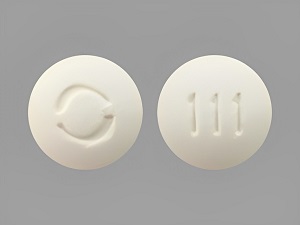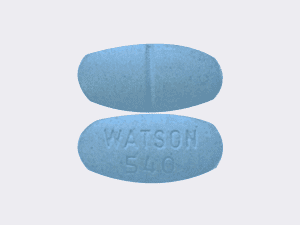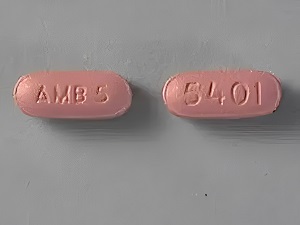In the tumultuous journey of life, anxiety emerges as a formidable adversary, casting shadows over our thoughts, emotions, and actions. Yet, amidst the labyrinth of anxiety lies a path to healing, a journey of self-discovery and resilience. Join us as we delve into the depths of anxiety, exploring its nuances, unraveling the threads of healing, and empowering you to reclaim a life of serenity and strength.
Understanding Anxiety
Anxiety, often misconstrued as mere worry, encompasses a symphony of emotions ranging from mild unease to overwhelming fear and panic. It manifests in various forms, including generalized anxiety disorder (GAD), social anxiety, panic disorder, phobias, and post-traumatic stress disorder (PTSD). Anxiety relief grip extends beyond fleeting moments, impacting daily life, relationships, work performance, and overall well-being.
The Impact of Anxiety
The impact of anxiety reverberates through every facet of life, casting a shadow over our thoughts, emotions, and actions:-
- Emotional Turmoil: Anxiety triggers a whirlwind of emotions, including fear, apprehension, irritability, restlessness, and a sense of impending doom or danger.
- Physical Symptoms: The physical toll of anxiety manifests in symptoms such as rapid heartbeat, shortness of breath, chest pain, sweating, trembling, gastrointestinal distress, and muscle tension.
- Cognitive Challenges: Anxiety clouds our thoughts, leading to racing thoughts, difficulty concentrating, memory problems, indecisiveness, and negative self-talk.
- Behavioral Patterns: Anxiety influences behavioral patterns, leading to avoidance behaviors, social withdrawal, procrastination, perfectionism, and compulsive behaviors as coping mechanisms.
Exploring the Causes of Anxiety
Understanding the underlying causes of anxiety is pivotal in embarking on the path to healing:-
- Biological Factors: Genetics, brain chemistry imbalances, and neurobiological factors play a role in predisposing individuals to anxiety disorders.
- Environmental Triggers: Traumatic experiences, chronic stress, major life changes, childhood upbringing, and environmental stressors contribute to anxiety development.
- Psychological Factors: Negative thought patterns, perfectionism, low self-esteem, past traumas, and unresolved emotional issues fuel anxiety symptoms.
- Lifestyle Influences: Unhealthy lifestyle habits, such as poor diet, lack of exercise, substance abuse, sleep disturbances, and work-life imbalance, exacerbate anxiety symptoms.
Strategies for Anxiety Relief
Embracing a holistic approach to anxiety relief empowers individuals to reclaim control, foster resilience, and embark on a journey of healing:-
Therapeutic Interventions:-
- Cognitive-Behavioral Therapy (CBT): CBT helps reframe negative thought patterns, challenge irrational beliefs, and develop effective coping strategies.
- Mindfulness and Meditation: Mindfulness practices cultivate present-moment awareness, reduce stress, and enhance emotional regulation, promoting inner peace.
- Exposure Therapy: Gradual exposure to anxiety-provoking situations helps desensitize fears and build confidence in managing anxiety triggers.
- Acceptance and Commitment Therapy (ACT): ACT emphasizes acceptance of emotions, values-driven actions, and mindfulness to enhance psychological flexibility and resilience.
Lifestyle Modifications:-
- Healthy Diet: A balanced diet rich in nutrients, antioxidants, omega-3 fatty acids, and gut-friendly foods supports brain health and mood regulation.
- Regular Exercise: Physical activity releases endorphins, reduces stress hormones, improves mood, and promotes overall well-being.
- Quality Sleep: Prioritize restful sleep by establishing a bedtime routine, creating a sleep-conducive environment, and practicing relaxation techniques.
- Stress Management: Practice stress-reduction techniques such as deep breathing, progressive muscle relaxation, yoga, tai chi, and journaling.
Social Support and Connection:-
- Cultivate supportive relationships, seek social connections, and engage in meaningful interactions to combat feelings of isolation and loneliness.
- Join support groups, attend therapy sessions, and connect with peers who understand and empathize with your anxiety experiences.
Mind-Body Practices:-
- Incorporate holistic approaches such as acupuncture, aromatherapy, biofeedback, massage therapy, and herbal supplements under professional guidance.
- Explore alternative therapies like hypnotherapy, art therapy, music therapy, and pet therapy as complementary tools in anxiety management.
Professional Guidance:-
- Consult mental health professionals, therapists, counselors, psychiatrists, or psychologists for personalized assessment, diagnosis, and treatment planning.
- Collaborate with healthcare providers to explore medication options, such as antidepressants, anxiolytics, or mood stabilizers, when indicated and under supervision.
Anxiety Medicine tablets for relief
Ativan (Lorazepam) :-
- Anxiolytic medication belonging to the benzodiazepine class.
- Rapid onset of action, providing quick relief from acute anxiety symptoms.
- Effective in managing generalized anxiety disorder (GAD), panic disorder, and insomnia related to anxiety.
- Potential side effects include drowsiness, dizziness, confusion, and dependency risks with prolonged use.
- Short-term use recommended due to tolerance and withdrawal risks.
Xanax (Alprazolam) :-
- Fast-acting benzodiazepine with anxiolytic properties.
- Provides rapid relief during anxiety episodes and panic attacks.
- Used for GAD, panic disorder, and anxiety symptoms.
- Side effects may include drowsiness, cognitive impairment, and dependency risks.
- Short-acting, suitable for acute anxiety relief but with potential for tolerance and withdrawal.
Klonopin (Clonazepam) :-
- Long-acting benzodiazepine effective for GAD, panic disorder, and seizure disorders.
- Slower onset of action compared to Ativan and Xanax.
- Less risk of rebound anxiety but may cause drowsiness, dizziness, and dependency with prolonged use.
- Used for both acute anxiety relief and long-term management, requiring careful monitoring for side effects and dependency risks.
Embracing Empowerment from Anxiety
As you embark on your journey of anxiety relief and healing, remember that each step forward is a testament to your strength, courage, and resilience. Embrace self-compassion, celebrate progress, and seek support when needed. You are not alone in this journey, and together, we can navigate the complexities of anxiety with empowerment, understanding, and hope.
Conclusion
Anxiety relief, while formidable is not an insurmountable obstacle. It is a chapter in your story, a narrative of challenges, growth, and triumphs. By embracing holistic strategies, seeking professional guidance, fostering self-awareness, and cultivating resilience, you can transcend the confines of anxiety and step into a life of vitality, purpose, and serenity. The journey to healing begins with a single step, and with each stride forward, you reclaim your power, rewrite your narrative, and unlock the potential for a brighter tomorrow.











Leave a comment